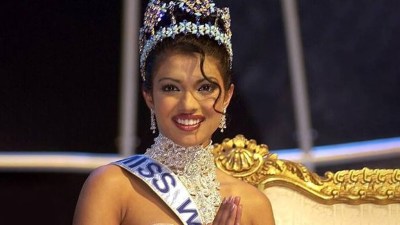People Unlike Us
A book that will change how you think of difference,parenting and commitment
Why do parents love their children? Apart from the neurobiological imperative,its also a bit of a vanity project. You want to see yourselves flatteringly mirrored back,you want to give them chances and choices you would have liked. You are looking to continue the story of you. You are rarely prepared to confront strangeness and dissimilarity.
Andrew Solomons new book,Far from the Tree: A Dozen Kinds of Love,asks what happens when your children try you in unimaginable ways. Solomon is gay,and had a hard time getting his parents used to the idea. Buttressed on either end by a personal essay about being a son and a father,Solomons book investigates the families of those who are at an angle to the social norm. His chapters are bluntly titled Deaf,Dwarfs,Downs Syndrome,Autism,Schizophrenia and so on.
Solomon calls these states of difference being gay,having a physical or intellectual disability,being a genius horizontal identities,aspects where the child does not resemble the family. Interestingly,instead of these leading to a common understanding of prejudice and greater solidarity,most of the people interviewed for the book resisted being clubbed together parents of schizophrenics were creeped out by dwarfs,people with autism pointed out that Downs Syndrome people had lower intelligence than theirs.
Out of these materials,Solomon has fashioned a tremendous and humane book that is bound to alter the way one thinks of difference,disability,love and commitment. Across the hundreds of interviews with families,you see the patience and valour of some parents,you also see exhaustion,ambivalence and problematic choices. What if your child was born of rape,for instance? Or if they become criminals,and the world judges you? Or if they are extraordinarily gifted,beyond your comprehension? These are testing,complex relationships that force you to wonder,as Solomon does,how much of a mothers love is mammalian DNA,how much a social convention,and how much it is a result of personal determination.
Special needs can be conceived as illness or as identity the first view disparages the condition,the second validates it. When people say they want their deaf child to be cured,what the child hears is this: her parents want her replaced with someone else. If deafness is seen as a pathology,Deaf capital D culture is an assertive politics and community like gay culture is to homosexuality. Such bitter battles rage everywhere,between those who seek a scientific cure,and those who have a political model of disability. While the former petition for greater funding and research,and place their faith in medical advances,the latter ask if the problem is disability itself or the way the world treats persons with disability,as a problem that needs solving instead of accommodating them as equal citizens. Even in India,where the struggles and victories are so preliminary and the choices so constrained,these are questions with high stakes.
Special needs parents are often torn between what they want to do for the child,often drastic intervention,and what the child herself might choose. For instance,when Ashley X was diagnosed with a severe brain injury that left her unable to function,her parents chose to attenuate her growth,leave her body permanently childlike. Her case caused great anger,with media talk of designer cripples however,Solomon takes a kinder view,arguing that her parents did it out of love,that easing their lives was critical to Ashleys well-being too,that we need to employ a subtler moral calculus on parenting a disabled child.
Far from the Tree makes each of these experiences terribly involving you see the repetitive effort of asking a DS child to say see the flower,the rejoicing at small breakthroughs,the rejections,the determination. You learn about the cruelties of the past and the politics of the present. It opens up slippery questions why is prenatal testing and abortion of foetuses with Downs Syndrome all right,when aborting a female baby is not? After all,seeking to eliminate the chance of a disabled child is an attempt to strip the world of variety and vulnerability. Solomon observes,Life is enriched by difficulty; love is made more acute when it requires exertion. This book shows you how relative normality can insulate you from the world and numb your empathy.
Though some of the parents interviewed in this book have given up their children,even wished their child would die,its remarkable how so many refuse to have it any different. Karen Robards says of her sons Down Syndrome: For David,Id cure it in an instant; but for us,I wouldnt exchange these experiences for anything. Even Sue Klebold,the mother of one of the Columbine mass-shooters,concludes: I know it would have been better for the world if Dylan had never been born. But I believe it would not have been better for me.
- 01
- 02
- 03
- 04
- 05






























